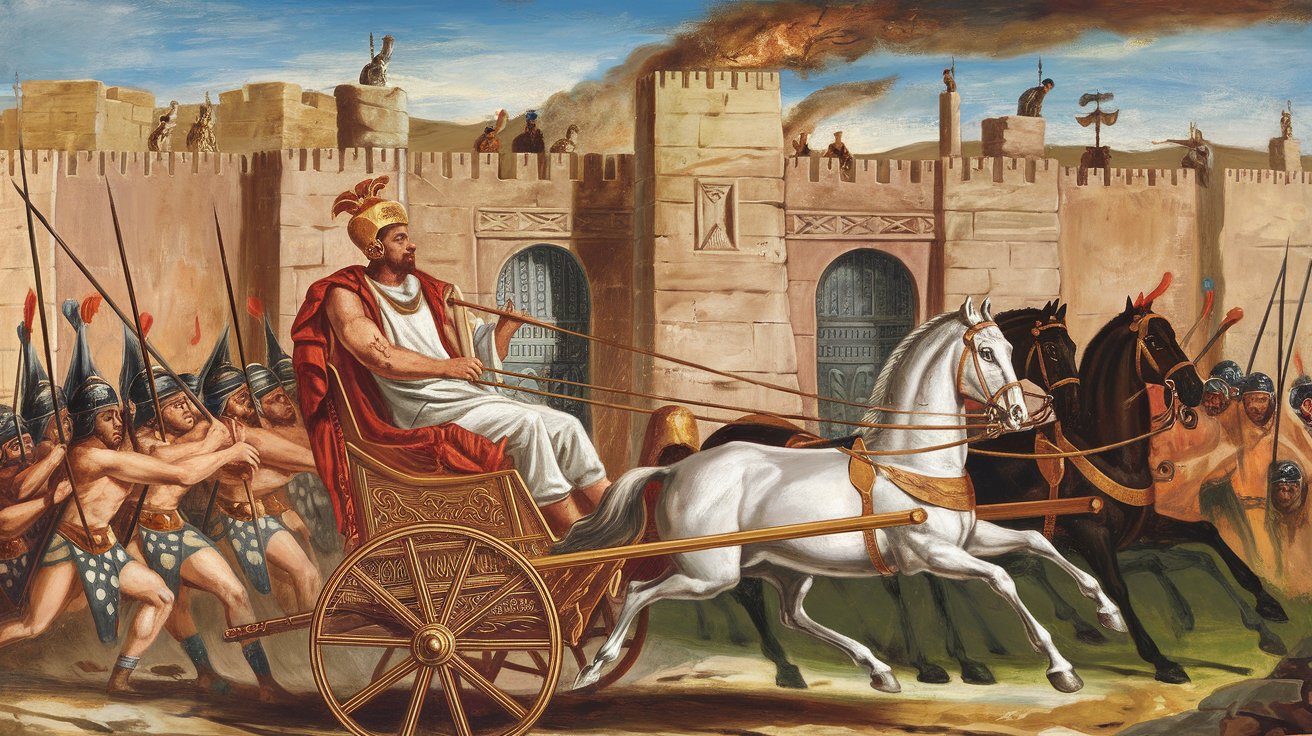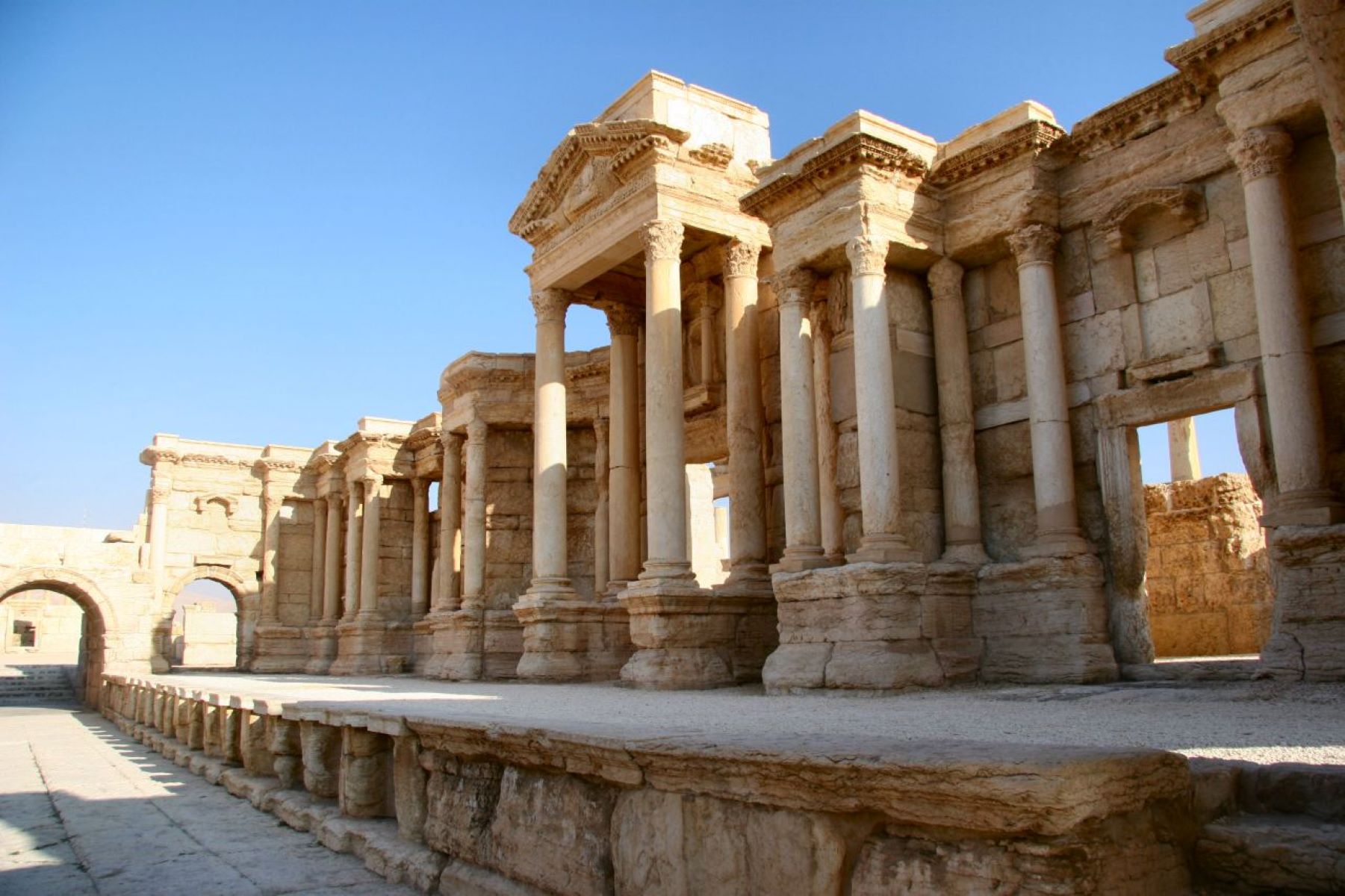
Cyrus the Great is a name that echoes through history, especially when discussing his conquest of Babylonia. This event, which took place in 539 BCE, marked a significant turning point in ancient history. But why is it so important? Cyrus' conquest not only expanded the Persian Empire but also showcased his unique approach to leadership and governance. Unlike many conquerors, Cyrus was known for his relatively humane treatment of the conquered peoples. He respected their cultures, religions, and traditions, which earned him a reputation as a liberator rather than a tyrant. This approach helped him maintain control over a vast and diverse empire. Cyrus' conquest of Babylonia is a fascinating chapter that offers valuable lessons in leadership, diplomacy, and cultural respect. Ready to dive into 30 intriguing facts about this monumental event? Let's get started!
Key Takeaways:
- Cyrus the Great's conquest of Babylonia in 539 BCE was marked by strategic brilliance and diplomatic finesse, leading to a bloodless takeover and progressive governance that influenced ancient and modern societies.
- His legacy as a tolerant and inclusive leader, as well as his military genius, left a lasting mark on history, shaping the cultural, economic, and political landscape of Babylonia and beyond.
Cyrus the Great: The Conqueror
Cyrus the Great, founder of the Achaemenid Empire, is one of history's most renowned conquerors. His conquest of Babylonia is a significant event that shaped the ancient world.
- Cyrus the Great was born around 600 or 576 BCE in Anshan, Persia.
- He founded the Achaemenid Empire, which became one of the largest empires in history.
- Babylonia was a major kingdom in ancient Mesopotamia, known for its rich culture and advanced civilization.
The Fall of Babylon
The fall of Babylon marked a pivotal moment in ancient history. Cyrus's strategic and diplomatic skills played a crucial role in this conquest.
- Babylon was conquered by Cyrus in 539 BCE.
- The conquest was relatively bloodless, with minimal destruction.
- Cyrus entered Babylon without a fight, as the city gates were opened by Babylonian priests.
- The Babylonians were reportedly discontent with their king, Nabonidus, which facilitated Cyrus's entry.
- Cyrus's army diverted the Euphrates River to enter the city through the riverbed.
Cyrus's Policies and Governance
Cyrus was known for his progressive policies and humane approach to governance, which earned him respect and loyalty from his subjects.
- He issued the Cyrus Cylinder, considered the first declaration of human rights.
- Cyrus allowed the Jews exiled in Babylon to return to their homeland and rebuild their temple in Jerusalem.
- He respected the local customs and religions of the conquered territories.
- Cyrus's administration was marked by a policy of tolerance and inclusion.
- He appointed satraps (governors) to oversee different regions of his empire.
The Impact on Babylonia
Cyrus's conquest had a profound impact on Babylonia, influencing its culture, economy, and political landscape.
- Babylon became a major administrative center of the Achaemenid Empire.
- The city's infrastructure was preserved and even enhanced under Persian rule.
- Cyrus's policies led to a period of stability and prosperity in Babylonia.
- The Babylonian economy flourished due to increased trade and agricultural productivity.
- Babylonian scribes and scholars continued to thrive under Persian patronage.
Legacy of Cyrus the Great
Cyrus's legacy extends beyond his military conquests. His leadership style and policies left a lasting mark on history.
- He is often referred to as the "father of the Iranian nation."
- Cyrus's empire set the stage for the later expansion under Darius and Xerxes.
- His tomb in Pasargadae remains a significant historical site.
- The Cyrus Cylinder is considered a symbol of human rights and tolerance.
- His leadership style influenced subsequent Persian rulers and other empires.
Cultural and Historical Significance
Cyrus's conquest of Babylonia is not just a historical event but a cultural milestone that influenced various aspects of ancient and modern societies.
- The conquest is depicted in various ancient texts, including the Bible.
- Cyrus is celebrated in Persian literature and folklore.
- His policies of tolerance influenced the Hellenistic rulers who followed.
- The Achaemenid Empire's administrative practices were adopted by later empires, including the Romans.
- Cyrus's legacy is commemorated in modern Iran as a symbol of national pride.
The Strategic Genius of Cyrus
Cyrus's military strategies and diplomatic acumen were key to his successful conquest of Babylonia.
- He employed a combination of military force and psychological warfare.
- Cyrus's ability to form alliances with local leaders and discontented factions within Babylon was crucial to his success.
The Legacy of Cyrus' Conquest
Cyrus' conquest of Babylonia wasn't just a military victory; it reshaped the ancient world. His approach to governance, marked by tolerance and respect for local customs, set a new standard. By allowing exiled peoples to return to their homelands, he earned a reputation as a liberator rather than a conqueror. This strategy not only stabilized his empire but also fostered loyalty among his subjects.
The Cyrus Cylinder, often considered the first declaration of human rights, highlights his progressive policies. His reign influenced future empires, including the Greeks and Romans, who admired his leadership style. Cyrus' legacy endures, reminding us that power coupled with compassion can change the course of history. His story continues to inspire leaders and historians alike, proving that true greatness lies in the ability to unite and uplift diverse cultures.
Frequently Asked Questions
Was this page helpful?
Our commitment to delivering trustworthy and engaging content is at the heart of what we do. Each fact on our site is contributed by real users like you, bringing a wealth of diverse insights and information. To ensure the highest standards of accuracy and reliability, our dedicated editors meticulously review each submission. This process guarantees that the facts we share are not only fascinating but also credible. Trust in our commitment to quality and authenticity as you explore and learn with us.


